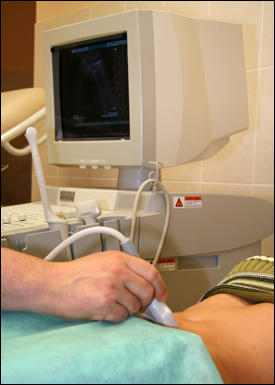In what amounted to one of the most chaotic days ever experienced in Canberra yesterday, Federal Parliament still found time to approve the passage of legislation to create a national electronic health record scheme.
The legislation will facilitate the creation of electronic health identifiers that will allow Australians to create personally controlled e-health records. The project was funded to the tune of $466.7 million in this year’s Federal budget and will be administered by Medicare.
“The Government would like to thank the Opposition and the minor parties for their support of this bill,” said Health Minister Nicola Roxon in Parliament yesterday, “which is an important step forward to improving the safety, quality and efficiency of health care in Australia.”
Yesterday also saw Prime Minister Kevin Rudd deposed in a swift Labor caucus vote, with deputy Julia Gillard taking the reins, as well as the resignation of Finance and Deregulation Minister Lindsay Tanner.
“While it may seem very late on a very long day to be doing this, it does ensure that this can come into effect from 1 July — next week — as planned,” Roxon added. “Across the country, we, healthcare providers and others can get on with the job of building an e-health system for the future of this country.”
Opposition Leader Tony Abbott has previously pilloried the plan.
“Of course, there should be an electronic health record but hundreds of millions of dollars have already been spent to make this a reality and no more should be spent until it’s certain that we’re not throwing good money after bad,” he said in mid-May.
And Shadow Parliamentary Secretary for Health, Andrew Southcott — representing the Opposition — noted that a number of amendments to the two bills concerned had been made after the Opposition expressed concerns. However, ultimately the bill was passed with the Opposition’s support.
“On behalf of the Opposition, I wish to say that we agree that the unique individual healthcare identifier is an important … of the architecture for e-health,” he said yesterday in the House of Representatives.
“I also note that [the Coalition of Australian Governments] has set aside $218 million for the adoption of a healthcare identifier service which runs until 30 June 2012,” he said. “This money has already been allocated. Now the legislation is in place to let this go forward.”
Image credit: Wojciech Wolak, royalty free


I’m a little puzzled by previous articles on this subject referring to others’ fear that this health ID might become a de facto Australia Card. As usual with our government, when we protested something we didn’t accept (the Australia Card), they sneaked it in under other names later. Already, we have Tax File Numbers, Medicare numbers, credit card numbers, health insurance numbers, driving licence numbers etc. through which we can be comprehensively identified and tracked. Any illusion of anonymity is not useful at this point. We need to accept that our personal information can be accessed, and work on managing that access.
Also, we can’t rely on the lack of networking between current health software. Even though the klunky custom software used by medical practices doesn’t do anything well, it’s trivial to cut’n’paste information, the info is travelling through government networks all the time, and it won’t take long for someone to write interface software. There’s never been real confidentiality in our health system, so again we need to work with what’s really happening.
Do we have a realistic technical and everyday impact assessment of this policy anywhere online? Everyone has some contact with the health system, so we need to know how this will affect us. I hope it will help, but I look at my very well-intentioned GP pecking away uneasily at his keyboard and wonder when all these added layers of bureaucracy will actually free the doctor to do some doctoring.
Comments are closed.